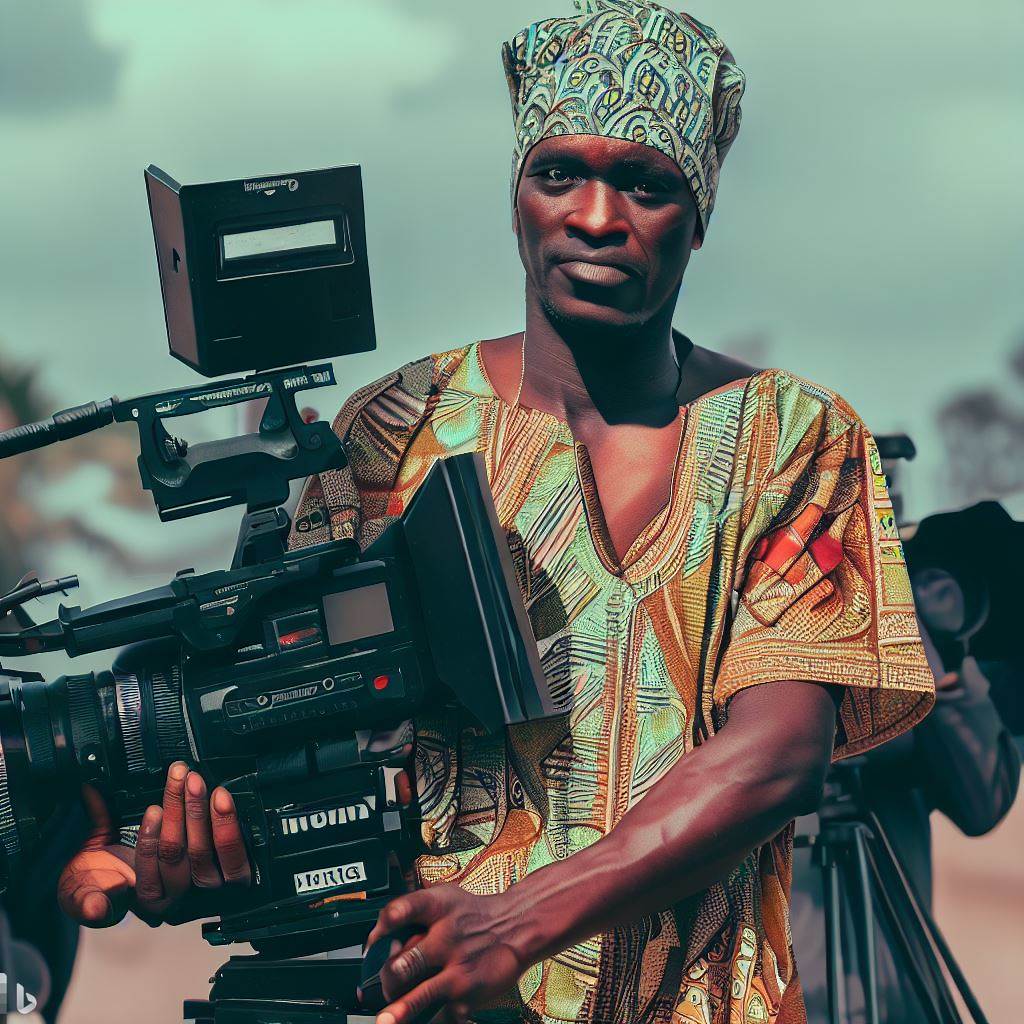Introduction
Nigerian writers face numerous challenges that affect their ability to effectively express themselves through their work.
It is crucial to discuss these challenges as they impact not only the writers but also society as a whole.
Nigerian writers, passionate wordsmiths weaving tales, confront unique hurdles stifling their creative journey. Aspiring authors grapple with:
- Limited Publishing Opportunities: The scarcity of reputable publishing houses restricts writers’ avenues to showcase their work.
- Inadequate Literary Infrastructure: A dearth of writing workshops, critique groups, and literary festivals hampers skill development.
- Socio-Political Pressures: Navigating sensitive topics under government scrutiny tests writers’ courage and autonomy.
- Linguistic Diversity: Nigeria’s linguistic richness presents a challenge in choosing the right language to reach a broader audience.
- Economic Struggles: Financial constraints often deter writers from pursuing their craft full-time.
This issue is paramount for several reasons
- Cultural Enrichment: Nigerian literature encapsulates the nation’s essence, preserving traditions, and fostering identity.
- Global Perspective: Addressing challenges can amplify Nigerian voices on the global literary stage, enriching global discourse.
- Inspiration for Aspiring Writers: Sharing these challenges inspires resilience and determination among budding Nigerian authors.
- Societal Growth: Literature acts as a mirror to society; overcoming obstacles can spark dialogues on pertinent issues.
By acknowledging and discussing these challenges, we contribute to a brighter literary landscape, encouraging change and innovation.
In the subsequent chapters, we will delve deeper into each challenge, unraveling strategies and success stories, guiding Nigerian writers toward triumphant narratives.
Major Challenges Faced by Nigerian Writers
Limited Accessibility to Publishing Opportunities
Nigerian writers face numerous challenges in their quest to excel in the literary industry. Limited accessibility to publishing opportunities is one of the major hurdles.
The country lacks established publishing houses, making it difficult for writers to find suitable platforms to showcase their work.
Literary agents are also scarce, adding to the struggle of getting published. As a result, many Nigerian writers are exploring self-publishing as a viable alternative to traditional publishing channels.
Limited Resources and Infrastructure
Moreover, limited resources and infrastructure pose significant obstacles to Nigerian writers.
Access to libraries and research materials is limited, hindering the depth of research and knowledge required for quality writing.
Insufficient internet connectivity and frequent power supply issues further compound the problem, making it challenging for writers to conduct online research and engage with the global literary community.
Additionally, the inadequate funding available for writing and literary initiatives restricts the growth and development of Nigerian writers.
Sociocultural Barriers and Stereotypes
Sociocultural barriers and stereotypes also impact Nigerian writers.
Pursuing a writing career is often stigmatized in Nigerian society, where professions like medicine, law, and engineering are traditionally prioritized.
This societal bias can discourage aspiring writers and limit their opportunities.
Gender bias is another issue prevalent in the literary industry, with female writers facing challenges in getting their work recognized and celebrated.
Furthermore, cultural expectations and conservative norms can restrict the themes and topics that Nigerian writers explore, limiting their creativity and expression.
Lack of Literary Education and Mentorship
Moreover, the lack of literary education and mentorship programs hinders the growth of Nigerian writers.
Insufficient writing workshops and classes limit the opportunities for writers to refine their craft and learn from experienced professionals.
Additionally, the absence of established mentorship programs deprives emerging Nigerian writers of guidance and support to navigate the complexities of the industry.
There is a need for increased awareness and support for aspiring and emerging Nigerian writers to foster their talent and help them overcome these challenges.
In the end, Nigerian writers face significant challenges on their journey to success in the literary industry.
Limited accessibility to publishing opportunities, limited resources and infrastructure, sociocultural barriers and stereotypes, and the lack of literary education and mentorship are some of the key obstacles they encounter.
However, with perseverance and the support of initiatives that aim to address these challenges, Nigerian writers can overcome these hurdles and showcase their talent globally.
Read: Nigeria’s Literary Festivals: A Haven for Writers
Strategies to Overcome Challenges
Expanding Publishing Opportunities
- Encouraging the establishment of more publishing houses can provide Nigerian writers with more avenues to showcase their work.
- Building connections with international publishing platforms allows Nigerian writers to reach a global audience.
- Implementing supportive policies and grants for authors can help provide financial assistance and resources to Nigerian writers.
Improving Resources and Infrastructure
- Advocating for the development of more libraries and literary centers can provide writers with access to research materials and a conducive environment for writing.
- Seeking collaborations with international libraries and institutions can promote sharing of resources and knowledge.
- Promoting government funding for literary initiatives can ensure the availability of resources for writers to enhance their craft.
Addressing Sociocultural Barriers and Stereotypes
- Raising awareness through literary discussions and events can challenge societal attitudes towards Nigerian writers and their work.
- Organizing writing competitions to showcase Nigerian talent can help break stereotypes and highlight the diversity of voices in Nigerian literature.
- Encouraging literary festivals that celebrate diverse voices can provide a platform for Nigerian writers to gain recognition and appreciation.
Enhancing Literary Education and Mentorship
- Initiating writing workshops and classes for aspiring writers can equip them with necessary skills and knowledge.
- Establishing mentorship programs with successful Nigerian authors can provide guidance and support to upcoming writers.
- Encouraging the inclusion of literary education in school curricula can nurture a love for reading and writing from a young age.
By implementing these strategies, Nigerian writers can overcome the challenges they face and thrive in the literary world.
Expanding publishing opportunities, improving resources and infrastructure, addressing sociocultural barriers and stereotypes, and enhancing literary education and mentorship are all vital steps towards creating a supportive and thriving environment for Nigerian writers.
With collaborative efforts from the government, publishing industry, and the larger society, Nigerian writers can continue to make significant contributions to the literary landscape.
Read: Local Vs International Publishing: A Nigerian Perspective

Case Studies and Success Stories
Successful Nigerian writers who have overcome challenges
- Chinua Achebe – Despite facing rejection from publishers, Achebe persisted and self-published his masterpiece, “Things Fall Apart,” which went on to become a global bestseller.
- Chimamanda Ngozi Adichie – Overcame cultural and gender stereotypes to become an internationally acclaimed author, inspiring many young Nigerian writers.
- Wole Soyinka – Endured imprisonment and exile for his outspoken criticism of the Nigerian government but continued writing plays, poetry, and essays that won him the Nobel Prize in Literature.
Personal experiences and the strategies they used to succeed
- Chinua Achebe – He persevered by believing in his story, exploring self-publishing, and actively promoting his work through word-of-mouth and literary circles.
- Chimamanda Ngozi Adichie – She honed her craft by attending writing workshops, seeking constructive feedback, and staying true to her unique storytelling style.
- Wole Soyinka – Despite facing persecution, he used his platform and writings to shed light on social and political issues, garnering support from international literary communities.
Learning from their stories and gaining inspiration for aspiring writers
- Perseverance pays off: Nigerian writers who faced rejections and setbacks ultimately achieved success by staying committed to their craft.
- Seek support and feedback: Building a network of fellow writers, attending workshops, and getting constructive criticism help in improving writing skills.
- Embrace uniqueness: Nigerian writers can gain recognition and readership by embracing their cultural heritage and incorporating it into their storytelling.
- Speak out through writing: By using their platform and the power of words, Nigerian writers can raise awareness and initiate societal change.
By highlighting the success stories of Nigerian writers, readers are reminded of the immense talent and potential within the Nigerian literary community.
These writers serve as beacons of hope and motivation for aspiring writers who face similar challenges in their own journeys.
Their stories inspire budding authors to persevere, seek support, embrace their uniqueness, and most importantly, use their writing as a tool for change.
Read: Examining the State of Digital Writing in Nigeria
Uncover the Details: Key Responsibilities of a Performer’s Manager in Nigeria
Conclusion
Nigerian writers face several challenges in their pursuit of literary success. These include limited access to publishing opportunities, inadequate funding, and a lack of recognition in the global literary community.
To overcome these obstacles, Nigerian writers must persevere and push through the barriers that stand in their way.
They should seek out alternative publishing platforms, such as digital self-publishing, and actively engage in networking with other writers.
It is crucial to emphasize the importance of overcoming these challenges.
Literature plays a vital role in shaping a society’s culture and identity, and Nigerian writers have a unique perspective to offer to the global literary landscape.
To encourage Nigerian writers, we must remind them to stay determined and never give up on their dreams.
Despite the challenges they face, they have the ability to make a significant impact and contribute to the literary world.
Furthermore, it is necessary for collective efforts to be made to improve the literary landscape in Nigeria.
Government support, increased funding, and the establishment of literary organizations can create an enabling environment for Nigerian writers to thrive.
Nigerian writers face numerous challenges, but with perseverance, determination, and collective efforts, they can overcome these obstacles and make a lasting impact on the literary world.




